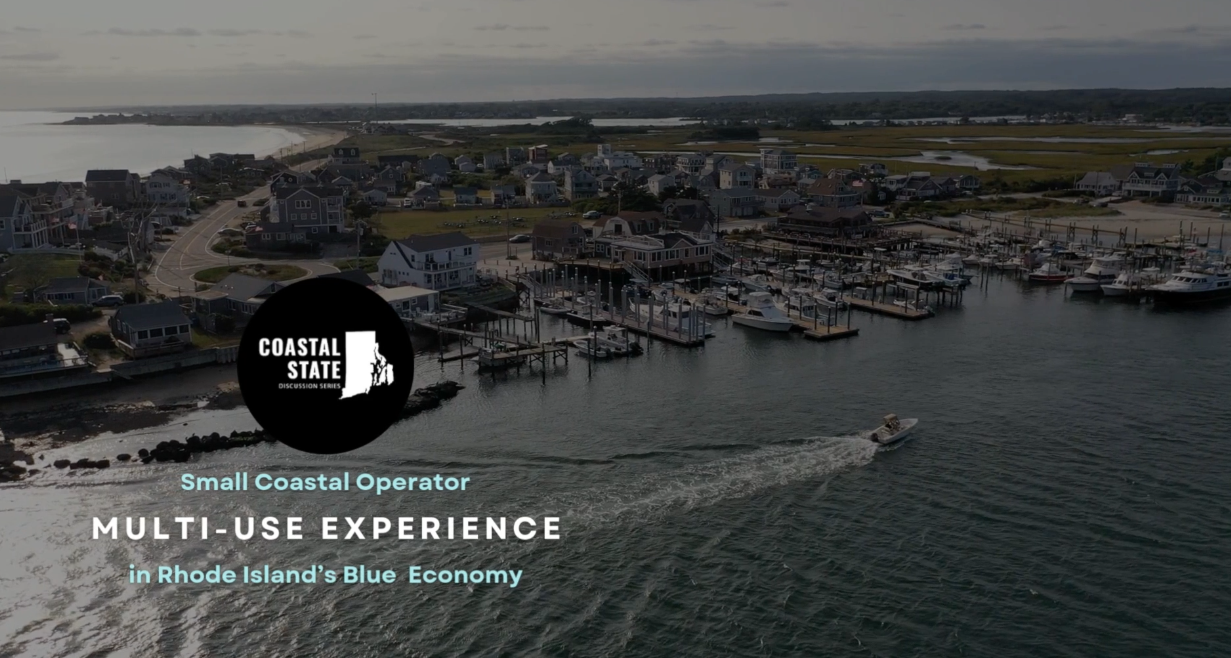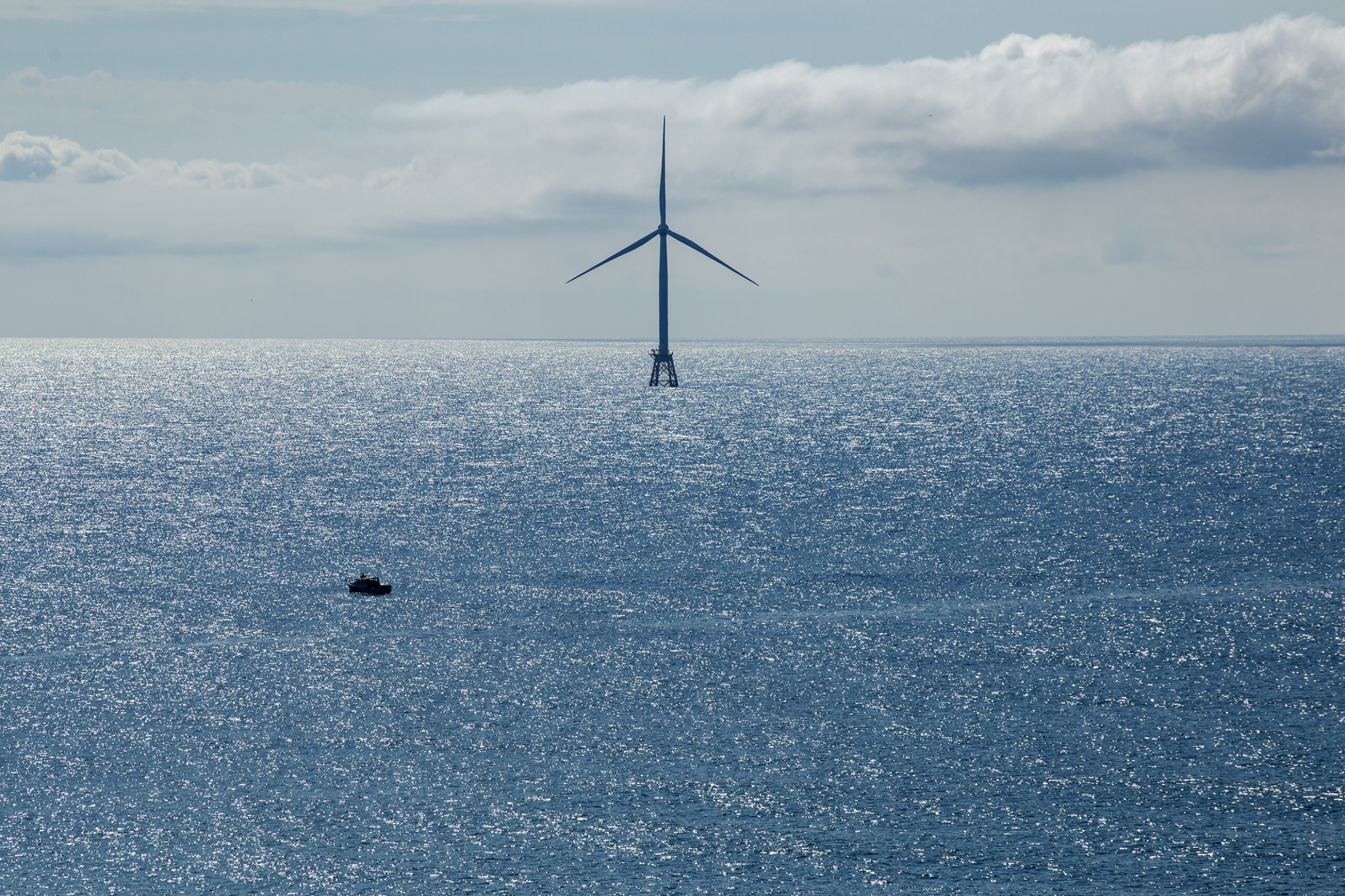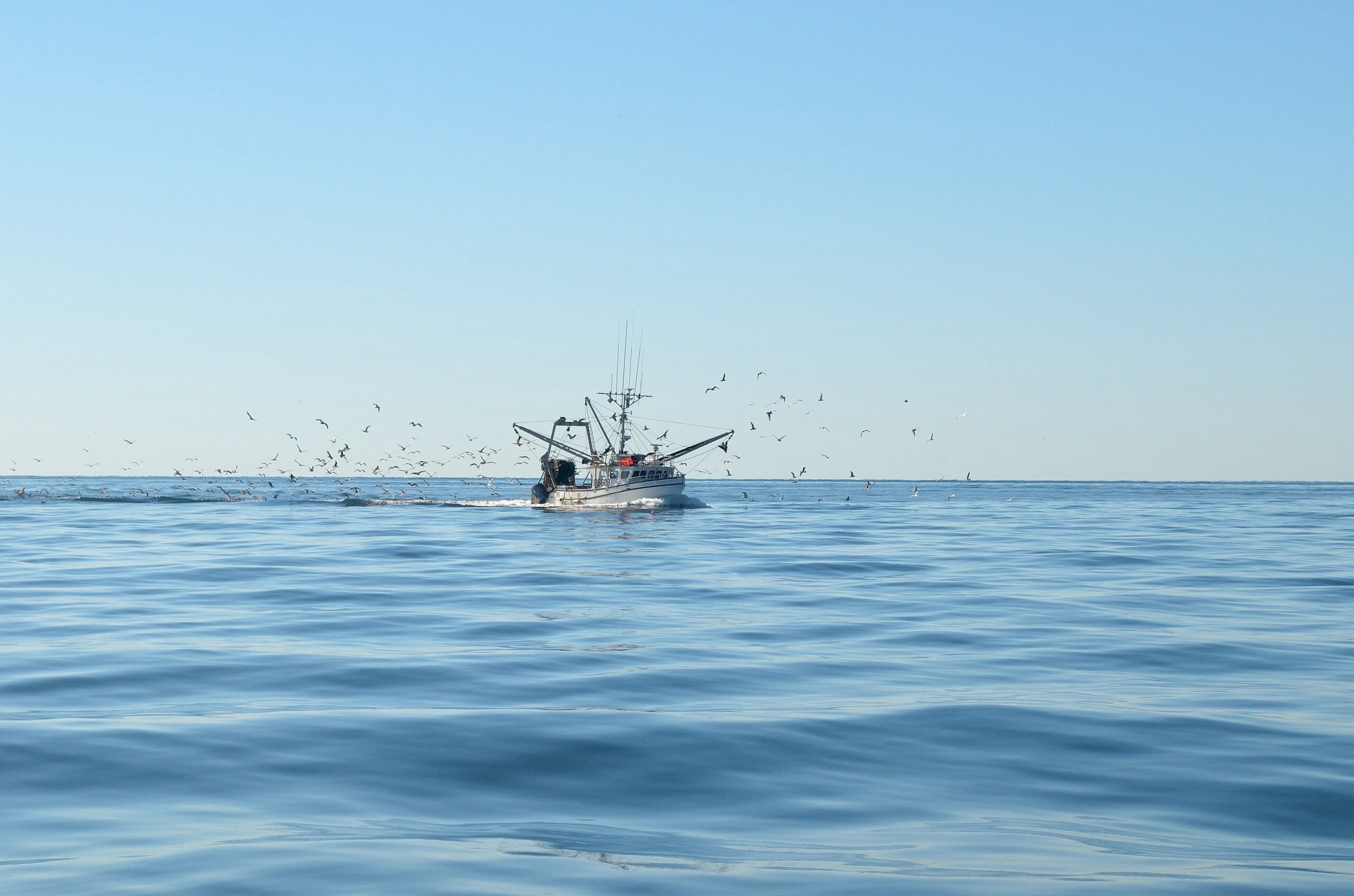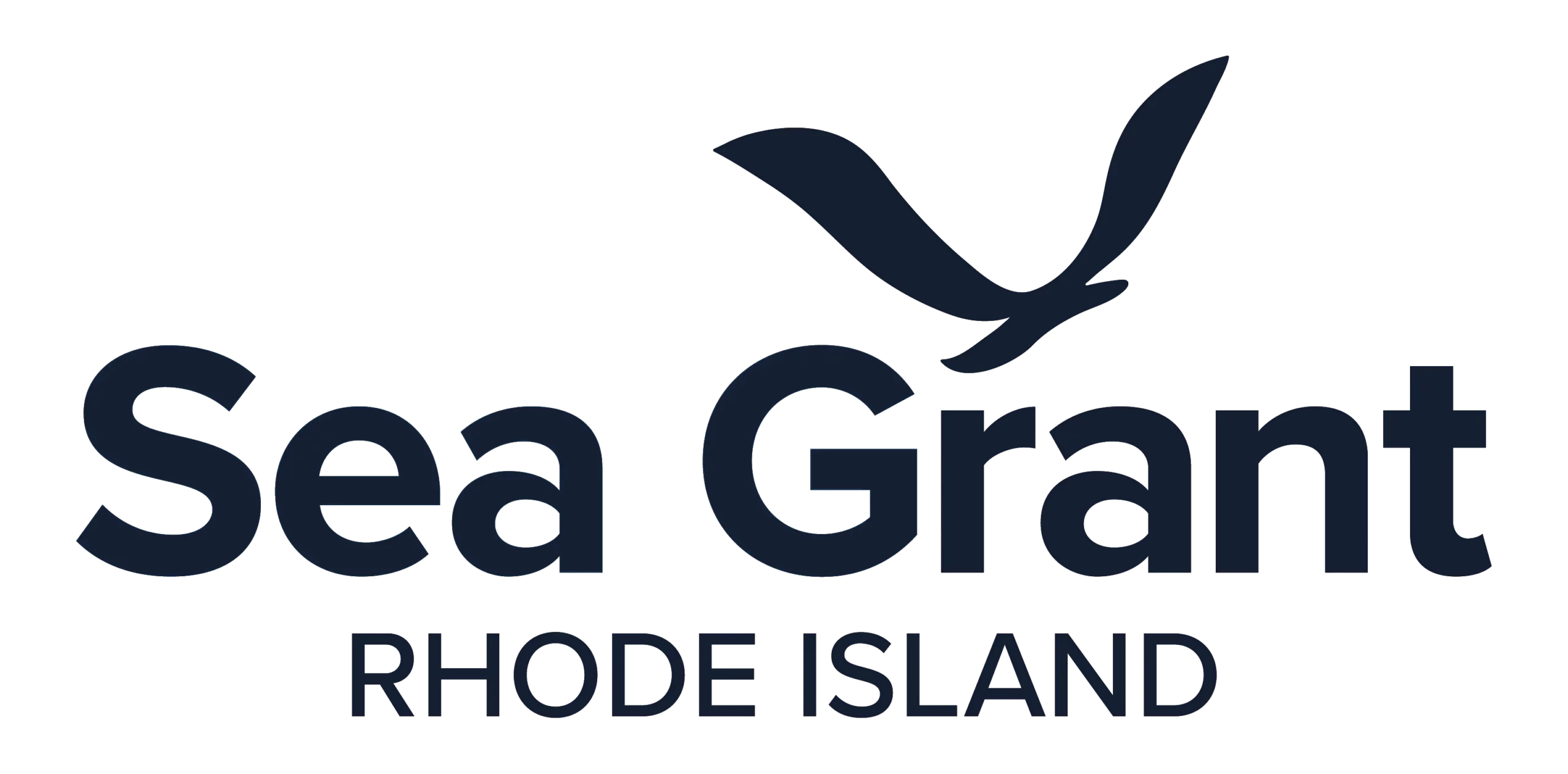
As Rhode Island navigates the future of its marine industries, new research sheds light on the opportunities and challenges of multi-use marine in environments for an often overlooked demographic–small coastal business owners. Dr. David Bidwell and Dr. Tiffany Smythe at the University of Rhode Island shared research findings focused on the experiences of small marine operators in Rhode Island’s coastal and blue economy as part of Sea Grant’s annual Coastal State Discussion Series. The study explores how and if a multi-use framework can foster economic growth, address conflicts, and ensure equitable access to marine resources.
“This is exploratory research, as this hasn’t been done, to our knowledge, in other areas,” said Bidwell. “We aimed to explore marine users’ experiences and perspectives on multi-use, with a particular focus on small operators in the blue economy—charter operations, commercial fishermen, and small aquaculture farms. We wanted to understand their day-to-day experiences on the water, their views on potential multi-use opportunities, and what they believe could benefit their activities and sectors in the future. Building on that, we sought to develop innovative multi-use opportunities for the future that could involve both small-scale and larger-scale operators.”
Challenges of Multi-Use
At its core, multi-use refers to various shared use of marine spaces. This concept can range from basic coexistence—where multiple activities happen in the same location simultaneously—to symbiotic arrangements that involve shared infrastructure and resources.
“Multi-use has been described by experts and advocates as a way to facilitate the blue economy,” said Smythe. However, she noted that many marine users question its sustainability and equity, often finding multi-use a forced circumstance.
“Coexistence was generally not framed very positively. It was framed as something that is involuntary and, in some cases, forced … by the increase in existing uses and the incursion of new uses,” explained Smythe, noting an exception to traditional uses. “Traditional multi-use … like recreational fishing and sailing where individuals are operating by shared rules and norms over decades was an interesting exception expressed by participants.”
However, those traditional uses fall under transient types of activities or “soft uses,” in which activities or interactions are only temporary. Some of the conflicts Smythe and Bidwell point to stem from new uses and more permanent fixtures in the water, such as aquaculture or offshore wind, which are viewed as more detrimental to sharing space.
“Participants are generally more tolerant of those soft, transient use but these permanent uses are what they’re most concerned about, and it’s that distinction that is shaping multi-use experiences as well as ideas of opportunities for future multi-use,” said Smythe.
However, they found examples of cooperation when recreational fishermen and shellfish farmers, often at odds over coastal access, engaged in a dialogue that led to collaborative solutions. This demonstrated the power of constructive conversations and cross-sector partnerships in reducing conflict and building a shared future. The research suggests that these kinds of partnerships—whether through tourism, education, or joint ventures—are feasible and could significantly improve both sectors’ long-term viability.
Another challenge was water access for both recreational and commercial users, specifically access to boat ramps. This was attributed to blocked rights-of-ways, land-use changes, government and land-owner behavior, and access site design.
“We heard loud and clear from our participants that coastal and water access is a barrier,” said Smythe. “In particular, site design is not just about rights-of-ways and parking, which we conventionally think about. It’s also about whether that access site facilitates different forms of use.”


The Economic Potential of Multi-Use Marine Systems
Many operators expressed concerns about the risks and uncertainties of expanding their businesses into multi-use ventures.
“One of the things that we heard from small operators as an obstacle was exactly this idea of risk: ‘how much do we invest in a new business opportunity that’s going to require us to maybe hire people, buy new equipment, etc., if we don’t know whether it’s actually going to fly?’” said Smythe.
However, there was also interest in finding new revenue streams to support business, whether it was integrating educational, tourism, or research opportunities. For instance, marine educators and aquaculture farmers showed enthusiasm for creating educational tours of shellfish farms, an initiative that could blend education, recreation, and economic benefits. Bidwell says another promising opportunity is “hook-and-cook” tourism, where tourists buy fresh seafood directly from operators and prepare it on-site, allowing visitors to engage more deeply with the industry while boosting local economies.
“Our colleague from Woods Hole Oceanographic Institution is exploring the economic impact of multi-use scenarios. For instance, adding recreational activities like tours or kayaking to aquaculture areas could significantly increase net economic value per acre of water,” said Bidwell. “The analysis shows that small operators, such as charter captains, could diversify their income through scientific research or by expanding charters to include activities like hook-and-cook tourism. However, realizing these opportunities often requires overcoming regulatory and marketing barriers.”
Regulatory hurdles, such as stringent health and safety requirements from the state’s Department of Health, will likely require high-level political advocacy, underscoring the importance of community involvement in shaping the policy landscape.
“Expanding multi-use opportunities will require more than creative ideas—it will take policy changes at the state level to address things like health guidelines or access restrictions. Without that, certain ideas simply can’t get off the ground,” he noted.
Beyond tourism, integrating offshore wind energy with aquaculture presented an intriguing idea. Although small operators expressed limited interest in directly combining these two industries, there was a significant amount of enthusiasm for harvesting marine life from the foundations of offshore wind turbines. These foundations naturally attract marine organisms like mussels, and many operators saw the potential for a mutually beneficial partnership—if only the offshore wind industry were ready to entertain such ideas. The research team hopes that through ongoing dialogue and creative thinking, the industry might open up new possibilities for small operators to tap into this emerging sector.
Creative Solutions and Future Possibilities
Bidwell and Smythe found that small operators often struggle to envision a future where their activities coexist with others in shared spaces and are uncertain about opportunities for the next generation.
“There are very, very few young people coming up, almost none. In the next 10 years, there’s going to be a lot of guys retiring, and there will be far fewer people to do the job, let alone qualified ones,” noted a lobsterman in one of the focus groups, according to Smythe.
One of the key findings of this research is the need for a more future-oriented mindset. As many participants admitted, imagining innovative solutions is challenging when the status quo feels so entrenched.
“It was difficult for people to imagine multi-use scenarios for the future that were attractive to them,” said Bidwell, noting that there were about 14 different favorable scenarios expressed, which included integration of research, tourism, and education to enhance aquaculture operations and charter services.
“Moving forward, continuing to do really important outreach with coastal communities on these issues because the only way we’re going to move through these conflicts is by enabling folks to be able to envision the solutions that they want,” added Smythe.
The research team concluded that addressing the barriers to multi-use systems requires a concerted effort and emphasized the importance of policy changes that support new business models and encourage cross-sector collaboration. More importantly, they highlighted the need for continued engagement and dialogue between sectors to ensure that these changes reflect the needs of all parties involved.
As the research moves into its next phase, there is hope that the ideas and findings will inspire further collaboration in Rhode Island and across coastal communities globally. Rhode Island can chart a path toward a more sustainable and resilient coastal economy by embracing innovative solutions, cultivating creative thinking, and fostering partnerships.
“Our results suggest that small operators resist multi-use and and don’t see benefits to the blue economy or at least to their participation in it,” said Smythe. “That’s significant because multi-use has been portrayed as the antidote to conflict that is created by increasing use of marine space through the development of the blue economy. These findings suggest that both multi-use and the blue economy have to be reconceptualized to include [small coastal operators].”
Coastal State Discussion Series
The Coastal State Discussion Series is a forum dedicated to highlighting current scientific research focused on marine issues impacting Rhode Island coastal communities and environments.
–By Meredith Haas, Research Communications & Digital Media Manager
